
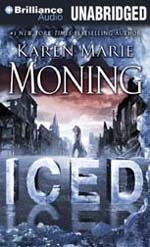 Iced (A Dani O’Malley Novel)
Iced (A Dani O’Malley Novel)
By Karen Marie Moning; Read by Phil Gigante and Natalie Ross
Publisher: Brilliance Audio
ISBN: 978-1-4558-1769-6
13 discs; 15 hours [UNABRIDGED]
Themes: / urban fantasy / faerie / Dublin /
Publisher Summary:
Dani “Mega” O’Malley plays by her own set of rules — and in a world overrun by Dark Fae, her biggest rule is: Do what it takes to survive. Possessing rare talents and the all-powerful Sword of Light, Dani is more than equipped for the task. In fact, she’s one of the few humans who can defend themselves against the Unseelie. But now, amid the pandemonium, her greatest gifts have turned into serious liabilities.
Dani’s ex–best friend, MacKayla Lane, wants her dead, the terrifying Unseelie princes have put a price on her head, and Inspector Jayne, the head of the police force, is after her sword and will stop at nothing to get it. What’s more, people are being mysteriously frozen to death all over the city, encased on the spot in sub-zero, icy tableaux.
When Dublin’s most seductive nightclub gets blanketed in hoarfrost, Dani finds herself at the mercy of Ryodan, the club’s ruthless, immortal owner. He needs her quick wit and exceptional skill to figure out what’s freezing Fae and humans dead in their tracks — and Ryodan will do anything to ensure her compliance.
Dodging bullets, fangs, and fists, Dani must strike treacherous bargains and make desperate alliances to save her beloved Dublin — before everything and everyone in it gets iced.
The strict genre shelving in bookstores can be unfortunate for readers. I would guess that many fantasy fans have not read Karen Marie Moning’s Fever series because her books are shelved under romance even though the series is more Urban Fantasy than Paranormal Romance. The new Dani O’Malley series which is a sequel to the Fever series is even less qualified for the romance shelves. The first installment, Iced, has even less romance than the entire Fever series.
The walls separating Faerie and the human world have come down. Rifts in reality can send an unwary person to an entirely different time and place. Unseelie monsters roam the streets and the human race is decimated. There is no power and creatures called “shades” devour any living thing that ventures into the dark. The plants and animals are gone, so food is a problem. Now, there’s a new problem. Around the city, people and objects are being instantaneously frozen. The people seem to be unaware of their impending deaths. Anyone entering these tableaux will freeze to death very quickly.
Dani “Mega” O’Malley is a 14-year-old sidhe seer living on the streets of Dublin. She has some abilities that make her see herself as a superhero. She is very fast, very strong and is keenly observant. However, she’s also an adolescent girl with a disturbing and damaging past. The owner of a popular nightclub forces Dani to work with him to solve the problem of areas around the region getting “iced”. Because she can move at hyperspeed, she better able to move into the frozen areas without suffering hypothermia.
The story is told entirely in first person, 90% from Dani’s point of view. However there are some sections that are told by Kat, the new leader of the sidhe seers, and Christian, a young highlander who is transforming into a sex-addicted unseelie prince.
I really loved Dani and the way she interacted with the insane world in which she lived. In some ways, she was mature beyond her years because of the way she grew up and the world that was thrust upon her. In other ways, she was a very typical young teenage girl. She feels like she’s smarter than the adults around her. She’s becoming aware of her sexuality, vacillating between wanting her first time to be special and thinking that sex is really gross. She feels invincible. I found her to be a very convincing 14-year-old girl. I really liked that Moning seems to be letting Dani be a kid and won’t rush her into a sexual relationship before she grows up. I’m really looking forward to seeing where this series goes.
At this point, I must point out that this is NOT a young adult novel despite the age of the main character. While Dani may be a virgin, there is a lot of sex in this book, most of it destructive. It’s also fairly gruesome in places. I wouldn’t freak out if an older teen reads it, but I wouldn’t be recommending it to them.
As much as I enjoyed this book, I would not recommend the audio version. This production uses two narrators, Phil Gigante and Natalie Ross. By having both a male and female narrator, one would think that the male would do parts told from a male character’s point of view and the female would do the parts from the female points of view. However, over 90% of this book is told from a female first-person perspective, so Phil Gigante’s impressive skills would be wasted if all he had to read were the parts that Christian tells. Instead of the typical method of using two narrators, this production splices Gigante’s voice into every bit of dialogue spoken by a male character. This is really annoying because it throws the listener out to the mode of listening to someone tell a personal story. If I were to tell you about a conversation I had with my husband, I certainly would be using my own voice to tell you what my husband or son said, not having some guy say his words for me.
The female narrator, Natalie Ross, was a poor choice for this particular book. The main reason I didn’t like her narration was that she simply sounded too old to be a 14-year-old girl. She sounds like she’s over 30. There are plenty of female narrators can do teenage voices well, she isn’t one of them. Ross also attempts to use an Irish accent for both Dani and Kat, but she fails miserably. It sometimes sounds fake Irish and sometimes sounds like the American South. She would have been better off not using any kind of accent, just her real voice. There also wasn’t much of a difference in how she voiced Dani vs. Kat. I got confused when the first Kat scene came up and it took me a couple of minutes to realize that it wasn’t Dani speaking.
Overall, I highly recommend Iced to fans of Urban Fantasy. It’s one of the better entries in the genre. It leaves the reader wanting more, but doesn’t leave the primary story hanging. My only suggestion is to read the print version rather than listening to the audio.
Reviewed by Sandi Kallas.


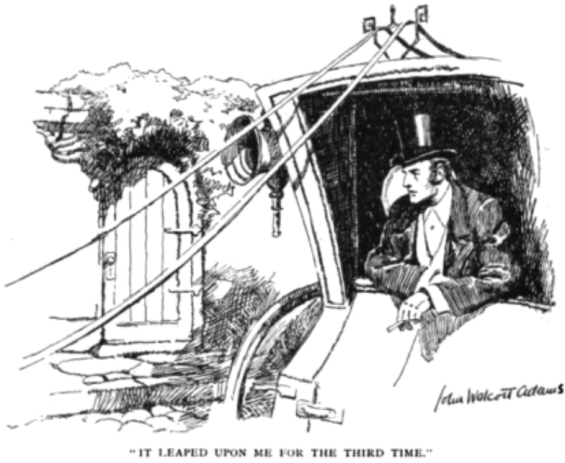
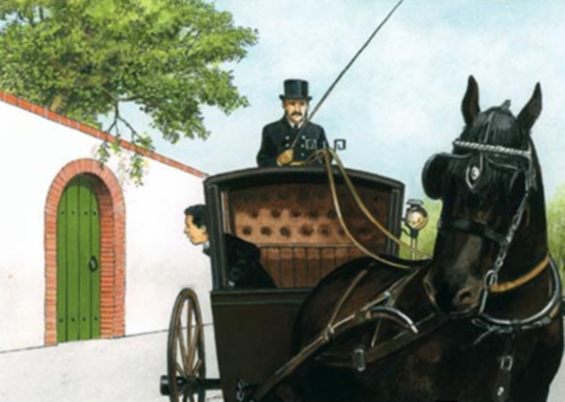
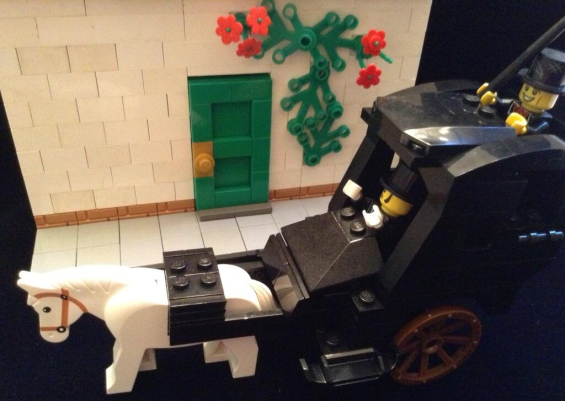
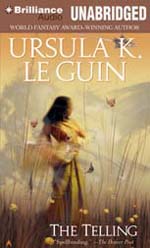 The Telling (Hainish Cycle)
The Telling (Hainish Cycle)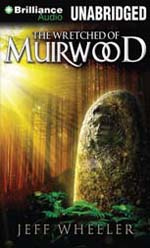 The Wretched of Muirwood (Muirwood #1)
The Wretched of Muirwood (Muirwood #1)

